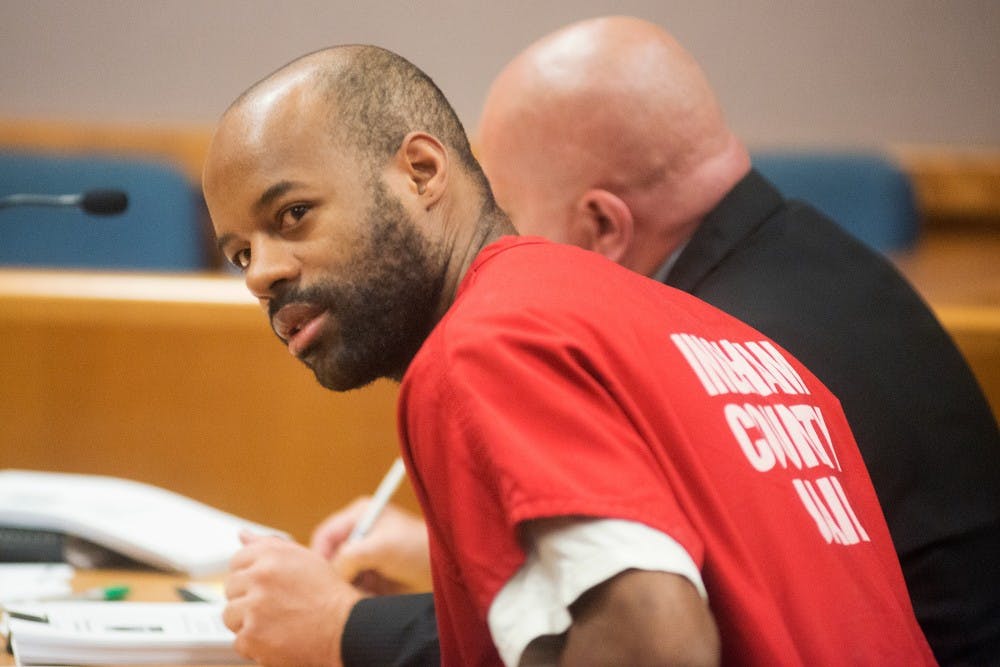East Lansing resident Ricard Taylor was sentenced to life in prison without parole for each of the two murders he committed just over a year ago.
Taylor fatally shot Frandor Rite Aid pharmacist Michael Addo and East Lansing resident Jordan Rogers in May, 2014. The hunt for Taylor after the Rite Aid shooting and the standoff at his residence on the 1800 block of Coolidge Rd. prompted a two-hour secure in place at MSU.
A month ago, on May 12, Taylor was found guilty but mentally ill on two counts of first degree murder and multiple felony gun charges. Mental illness didn’t factor into Taylor's sentencing, but he will receive psychiatric treatment while imprisoned, his attorney Keith Watson said.
During the trial, the defense argued that Taylor was legally insane at the time of the murders.
Taylor’s fragile mental state snapped the day of the murders, Watson explained, describing Taylor’s "extensive and convoluted and deep" delusional complex throughout his day-to-day life.
However, Ingham County deputy chief assistant prosecutor John Dewane contends Taylor acted on real-world motives, such as anger at Rogers for harassment and threats the night prior and frustration at Addo for allegedly blowing him off at the purchasing counter.
Taylor was diagnosed with paranoid schizophrenia and had a history of mental breakdowns with homicidal intentions, resulting in his being hospitalized several times, a state psychiatrist revealed in court. Taylor had been off his anti-psychotic medication for nearly three months before the murders.
The supposed motivation for the shootings was Taylor’s belief that the victims were morphing into werewolves, but Dewane said Taylor neither told this motive to detectives 45 minutes after the arrest, nor to the state psychiatrist in their first interview, giving them instead a narrative with real-world motives.
It was only later, after having read two books on werewolves and vampires, that Taylor told the state psychiatrist in their third interview that he had killed Addo and Rogers out of fear at their morphing into werewolves before him, Dewane said.
However, Dewane said that in a past case of hospitalization for a mental breakdown Taylor readily divulged his fear that his girlfriend's father was morphing into a werewolf.
A private forensic psychiatrist who interviewed Taylor contended that, although mentally ill, Taylor was in control of his actions at the time of the murders and comprehended the wrongfulness and consequences.







